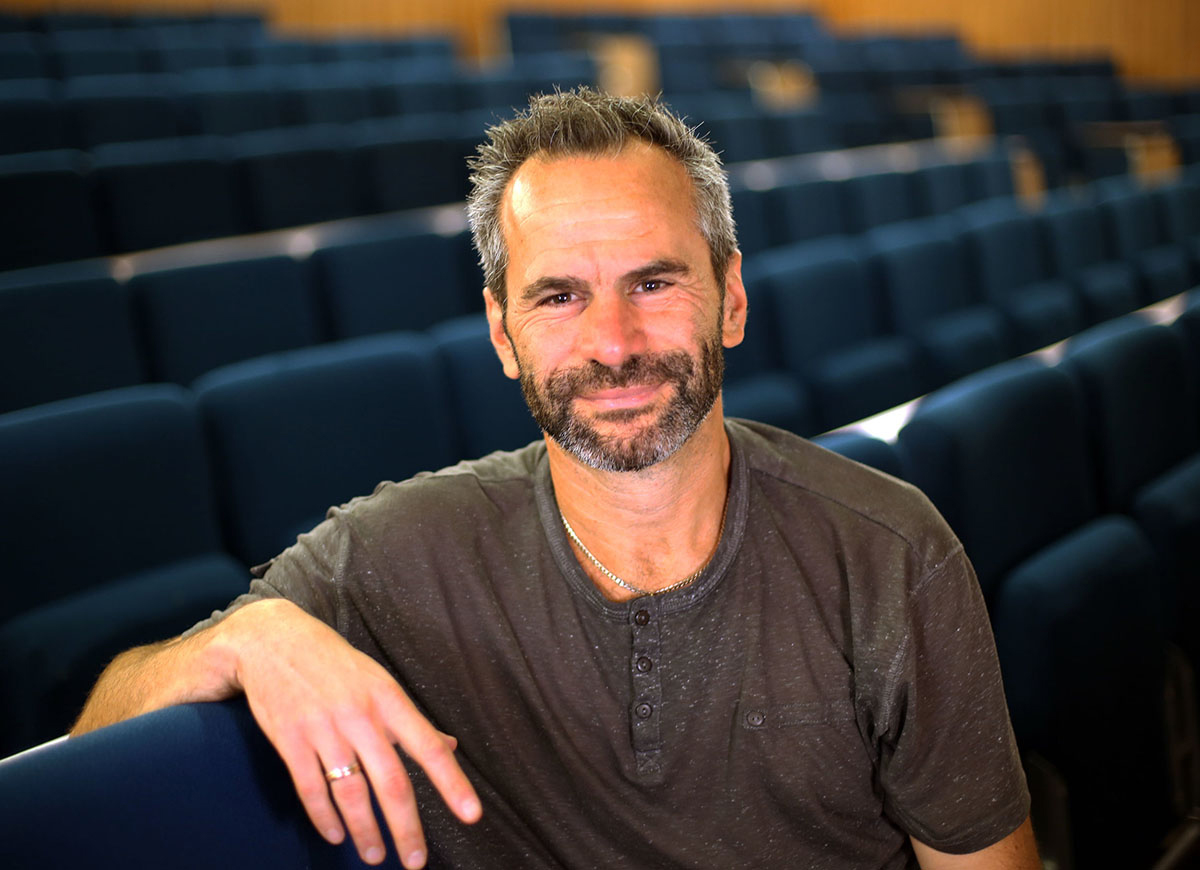This two-day workshop is appropriate for training and practising counsellors, psychotherapists, counselling psychologists and other mental health professionals.
DAY ONE
This workshop will introduce and look at the practical implications of, a pluralistic approach to counselling, psychotherapy and psychological practice. This framework was developed with John McLeod in the 2000s and has since been adopted by a number of practitioners and training institutes across the UK and internationally. The pluralistic approach is a collaborative, integrative perspective, deeply rooted in humanistic and person-centred values. Its fundamental premise is that each client is unique, and therefore may need different things from therapy. On this basis, the pluralistic approach creates a framework in which practitioners can integrate a wide variety of understandings and methods into their practice. A key element of this pluralistic approach is shared decision making: talking to clients about what they want from therapy, and how they might most effectively be helped to get there.
LEARNING OUTCOMES
By the end of this workshop, participants will be able to:
- Describe the basic principles of a pluralistic approach to counselling and psychotherapy
- Recognise evidence and arguments that support, and challenge, a personalised approach to therapy
- Explain the ways in which they are able to help clients, and the methods they use to facilitate this
- Critically discuss the strengths, and limits, of 'metatherapeutic communication': talking to clients about what they want from therapy
- Apply basic methods of metatherapeutic communication
- Critically evaluate the use of process and outcome measures in therapeutic practice
SCHEDULE
- Session 1: Introduction to pluralistic therapy: What it is and why it might be helpful
- Session 2: Self-reflection: What I offer clients and how I do that
- Session 3: Metatherapeutic communication: Talking to clients about what they want from therapy
- Session 4: Using measures to enhance pluralistic practice
DAY TWO
This interactive workshop provides participants with an opportunity to develop their understanding of working with goals in counselling and psychotherapy, and to develop their skills in this emerging area. Although many therapists are reluctant to focus on goals, they provide an opportunity to help clients define, for themselves, what is important to therapy; and evidence suggests that many clients do want to develop them as an orientating-point for therapy. The workshop starts by examining the 'teleological' philosophical principles underlying a goal-orientated approach to therapy — that human beings are 'directional', striving towards things--and goes on to examine what has been learnt from the psychological research about the nature of goals and goal processes (for instance, distinguishing between 'approach' and 'avoidance' goals). It then goes on to a more practical exploration of working with goals, including skills practice and video demonstrations.
LEARNING OUTCOMES
By the end of this workshop, participants will be able to:
- Recognise the philosophical, ethical and psychological rationale for working with goals in counselling and psychotherapy
- Discuss the theory and evidence that relates 'goal actualisation' and goals types to psychological wellbeing and distress
- Apply basic methods of goal-setting and goal-negotiation in counselling and psychotherapy
- Use the Goals Form in an appropriate manner
SCHEDULE
- Session 1: Philosophical and ethical basis for working with goals
- Session 2: The psychology of goals: How wellbeing and distress are related to 'goal actualisation'
- Session 3: Basic principles and methods for working with goals in counselling and psychotherapy
- Session 4: Using the Goals Form
WORKSHOP
FORMAT
The workshop combines self-development exercises, theoretical input, practical exercises, and small and large group discussion.
The workshop is appropriate for training and practising counsellors, psychotherapists, counselling psychologists and other mental health professionals.
DETAILS
Saturday 26 + Sunday 27 January 2019, 9:30am start, 4:30pm finish. Lifetime Therapy, 77 Lemon Street, Truro, Cornwall TR1 2PN (first floor, no lift)
Vegan lunch box option available and tea and coffee available throughout the day. Concessions are for students and unemployed people only.
BOOK A SPACE
MICK COOPER
Mick Cooper is co-author of Working at Relational Depth in Counselling and Psychotherapy (first published in 2005 with Dave Mearns), and recently returned to Brighton after 11 years living in Glasgow. He is an internationally recognised author, trainer and consultant in the field of person-centred and humanistic therapies. Mick is a counsellor, psychotherapist and Chartered Psychologist; and Professor of Counselling Psychology at the University of Roehampton. Mick has facilitated workshops and lectures around the world, including Australia, Lithuania and Florida. Mick's books include Existential Therapies (Sage, 2017), The Handbook of Person-Centred Psychotherapy and Counselling (Palgrave, 2013, 2nd ed.), and Essential Research Findings in Counselling and Psychotherapy (Sage, 2008). Mick's principal areas of research have been in shared decision-making/personalising therapy, and person-centred counselling in schools. In 2014, Mick received the Carmi Harari Mid-Career Award from Division 32 (Humanistic Psychology) of the American Psychological Association. He is a Fellow of the British Association for Counselling and Psychotherapy and the Academy of Social Sciences.
Website
Pluralistic Therapy
RESOURCES
Goals Form (with instructions)
Goals Form (blank form)
Therapy Pluralism Inventory: Therapist self-report measure of pluralism in practice
PUBLICATIONS
Swift, J. K., Callahan, J. L., Cooper, M., & Parkin, S. R. (2019). The impact of accommodation client preferences in psychotherapy: A meta-analysis. Journal of Clinical Psychology. doi: 10.1002/jclp.20759
Cooper, M., & Knox, R. (2018). Therapists’ self-reported chronic strategies of disconnection in everyday life and in counselling and psychotherapy: an exploratory study. British Journal of Guidance & Counselling, 46(2), 185-200. doi: 10.1080/03069885.2017.1343457
Papayianni, F., & Cooper, M. (2018). Metatherapeutic communication: an exploratory analysis of therapist-reported moments of dialogue regarding the nature of the therapeutic work. British Journal of Guidance & Counselling, 46(2), 173-184. doi: 10.1080/03069885.2017.1305098
Antoniou, P., Cooper, M., Tempier, A., & Holliday, C. (2017). Helpful aspects of pluralistic therapy for depression. Counselling and Psychotherapy Research, 17(2), 137-147. doi: 10.1002/capr.12116
Cooper, M., McConnachie, A., Messow, C.-M., Freire, E., Elliott, R., Heard, D., . . . Morrison, J. (2017). Patient preference as a predictor of outcomes in a pilot trial of person-centred counselling versus low-intensity cognitive behavioural therapy for persistent sub-threshold and mild depression. Counselling Psychology Quarterly. doi: 10.1080/09515070.2017.1329708
Thompson, A., Cooper, M., & Pauli, R. (2017). Development of a therapists’ self-report measure of pluralistic thought and practice: the Therapy Pluralism Inventory. British Journal of Guidance & Counselling, 45: 5, 489-499. doi: 10.1080/03069885.2017.1373745
Cooper, M., Wild, C., Rijn, B. v., Ward, T., McLeod, J., Cassar, S., . . . Sreenath, S. (2015). Pluralistic therapy for depression: Acceptability, outcomes and helpful aspects in a multisite study. Counselling Psychology Review, 30(1), 6-20.
Wallace, K., & Cooper, M. (2015). Development of supervision personalisation forms: A qualitative study of the dimensions along which supervisors’ practices vary. Counselling and Psychotherapy Research, 15(1), 31-40.
Cooper, M., Stewart, D., Sparks, J. A., & Bunting, L. (2013). School-based counseling using systematic feedback : a cohort study evaluating outcomes and predictors of change. Psychotherapy Research, 23(4), 474-488.
Bowen, M., & Cooper, M. (2012). Development of a client feedback tool: a qualitative study of therapists’ experiences of using the Therapy Personalisation Forms. European Journal of Psychotherapy and Counselling, 14, 47-62.
Cooper, M., & McLeod, J. (2012). From either/or to both/and: Developing a pluralistic approach to counselling and psychotherapy. European Journal of Psychotherapy and Counselling, 14(1), 5-18.
Thompson, A., & Cooper, M. (2012). Therapists’ experiences of pluralistic practice. European Journal of Psychotherapy and Counselling, 14(1), 63-76.
Watson, V., Cooper, M., McArthur, K., & McLeod, J. (2012). Helpful therapeutic processes: A pluralistic analysis of client activities, therapist activities and helpful effects. European Journal of Psychotherapy and Counselling, 14(1), 77-90.
Cooper, M., & McLeod, J. (2011). Person-centered therapy: A pluralistic perspective. Person-Centered and Experiential Psychotherapies, 10(3), 210-223.
Cooper, M., & McLeod, J. (2007). A pluralistic framework for counselling and psychotherapy: Implications for research. Counselling and Psychotherapy Research, 7(3), 135-143.
PUBLICATIONS
Papayianni, F., & Cooper, M. (2017) Metatherapeutic communication: an exploratory analysis of therapist-reported moments of dialogue regarding the nature of the therapeutic work. British Journal of Guidance & Counselling. doi: 10.1080/03069885.2017.1305098
Cooper, M. (2014). Wants: A core humanistic construct. Self and Society, 42(3-4), 30-36.
Rupani, P., Cooper, M., McArthur, K., Pybis, J., Cromarty, K., Hill, A., . . . Turner, N. (2014). The goals of young people in school-based counselling and their achievement of these goals. Counselling and Psychotherapy Research, 14(4), 306-314. doi: 10.1080/14733145.2013.816758
Cooper, M. (2013). The intrinsic foundations of extrinsic motivations and goals: Towards a unified humanistic theory of wellbeing. Journal of Humanistic Psychology, 53(2), 153-171


